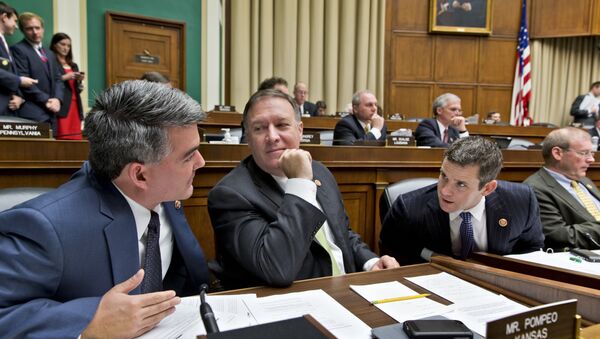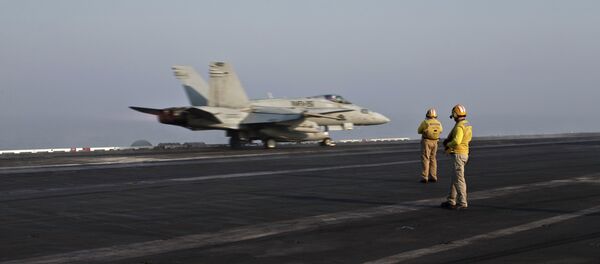Speaking at an annual intelligence conference at George Washington University October 4, CIA Director Mike Pompeo outlined his vision for more aggressive US intelligence work around the globe, pledging to send more spies to the field and moving decision-making down the chain of command — a choice with the potential of triggering problematic consequences.
"If you are in a process and you're not adding value, get out of the way. This risk of the absence of agility and speed is a price our agency can't afford to pay. It's one America cannot afford either," Pompeo said.
.@CIA Director Pompeo will be making his next public appearance tomorrow morning, after cancelling event at Harvard over Manning controversy pic.twitter.com/0HgIRaUT7f
— Jenna McLaughlin (@JennaMC_Laugh) October 3, 2017
The former businessman and conservative Republican Congressman from Kansas didn't elaborate on how many more agents would be dispatched to the field, but said it was important to get personnel closer to where adversaries train and prepare to "take America down."
"The closer we can get to the center of it, deploying our people, tools and resources into the heart of the fight, the more quickly we'll engage those who threaten us and the more likely it is we will keep America safe," he said.
.@CIA Director Pompeo now telling stories of his time in business, relating to red tape
— Saagar Enjeti (@esaagar) October 4, 2017
As part of his proposals to improve the CIA's "agility and speed" Pompeo said he would pushing decision-making power to the lowest level possible, with decisions made by officers "closest to the issue at hand," as they "almost always have a firmer grasp on the details and should therefore be the ones leading the way."
Similarly, the number of people who have to sign off and review plans is to be reduced.
Dire Consequences
It's not merely in the field of intelligence US authorities have sought to streamline decision-making processes and rules. A mere day before Pompeo's speech, it was announced by Defense Secretary Jim Mattis that he had moved to "lift restrictions and expand authorities" on and of US operations in Afghanistan.
As a demonstration of this prospect, similar loosening of battlefield rules in Yemen led to a series of Special Operations raids in which many civilians were killed.
While the streamlining of decision-making in the field of intelligence is perhaps unlikely to produce mass civilian casualties, removing top-level staff from the executive loop may have hazardous implications.
There is perhaps no greater testament to this destructive potential than the April 1961 Bay of Pigs invasion, a notorious CIA-funded and planned effort by Cuban exiles to overthrow Fidel Castro's government and replace it with a non-communist, US-friendly government.
Subsequently declassified CIA files have revealed Agents allowed their keenness to remove Castro from power to override grave concerns over the operation's viability, and moreover hid these concerns from superiors — including then-President John F. Kennedy.
Assuming the President would commit US forces to the effort if it failed, the flawed plan was pushed ahead with — and, as several had privately predicted, it failed.
Similar, the January 1968 Tet Offensive was a major intelligence failure likewise caused by poor decision-making on the part of on-the-ground agents. The event saw North Vietnamese forces catch US forces unaware with a massive, coordinated assault, perhaps the most decisive battle in the Vietnam War.
A government inquiry concluded local CIA analysts had disregarded multiple warnings of the impending attack from local sources, and their own superiors, who had closer and wider understanding respectively of the impending situation.





